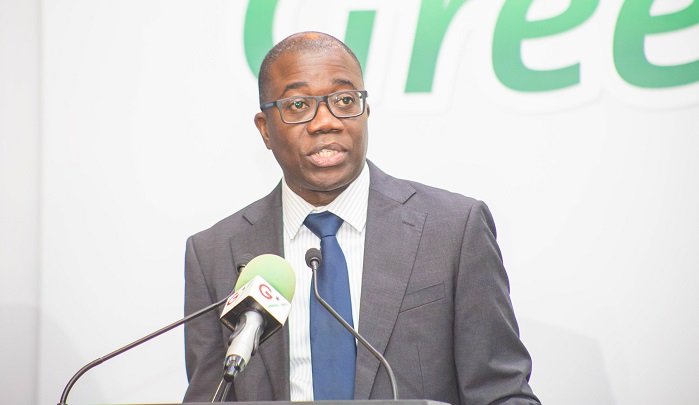Fidelity Bank to support technological innovations in agric sector – MD

Fidelity Bank Ghana has pledged its commitment to supporting technological innovations in agriculture in order to help boost food production in the country.
He stated that the youth have demonstrated that solutions to the agricultural challenges facing the country were attainable, ranging from the development of technologies for urban farming to the creation of machinery that supports smallholder farmers.
The Managing Director Fidelity Bank, made this pledge at the 3rd Sustainability Summit in Accra on Wednesday.
The programme, organised by the Business and Financial Times (B&FT) in partnership with Fidelity Bank, was on the theme: ‘Ensuring Environmental and Economic Sustainability: Collaborating for a Greener Future.’
Mr Opuni said by empowering start-ups and entrepreneurs with the resources they needed to develop green technologies, “We are fostering a culture of innovation which would play a vital role in ensuring both environmental resilience and economic progress.”
“As a bank we want to give these young minds the right mix of funding and technical assistance to protect the food basket of the country through technology,” he added.
According to Mr Opuni, the theme of this year’s conference emphasised the importance of collaboration and building a greener future required to diverse voices and perspectives across industries, sectors and communities.
“Whether through public -private partnership, engaging with non-governmental organisation or co-creating with innovators. We must recognise that our collective efforts are the key to success”, he emphasised.
For his part, the Managing Director of Business and Financial Times (B&FT), Dr Godwin Acquaye, stated that environmental sustainability was vital to the health and well-being of the planet.
“These issues demand immediate attention, not just from governments but from businesses, communities, and individuals alike,” he said.
Dr Acquaye also said economic sustainability was essential for improving the quality of life, reducing poverty, and ensuring equitable growth.
“A healthy economy provides jobs, fosters innovation, and enables societies to invest in their future. However, an economy that thrives at the expense of the environment is unsustainable”, he said.
Dr Acquaye further stated that illegal mining had reached an alarming rate and caused the depletion of vital resources in the society.
“These activities not only pollute our water bodies but also degrade the land, making it unproductive and hazardous for farming and other essential uses,” he said.
He noted that illegal mining was caused by factors such as weak enforcement of regulations, economic desperation, and a lack of sustainable livelihoods in affected areas.
BY KINGSLEY ASARE





